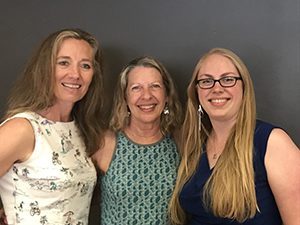
Jan Talbot (center) with Wendy Coulson (left) and Nicole Pacheco (right), Talbot’s graduate students.
One of the pioneers for women in engineering, Jan Talbot retired from the University of California San Diego on July 1, 2018.
Talbot was one of two women in her chemical engineering class at Penn State University. In 1970, when she started her program, there were only seven women and nearly 3,000 men in engineering.
According to the National Science Foundation, in 1973, 576 women in the U.S. graduated with a bachelor’s degree in engineering. Two years later, Talbot was one of the 372 women that earned a master’s.
After completing her degrees at Penn State, she became one of two women in her class to graduate from the University of Minnesota in 1986 with a doctorate in engineering and one of 225 women to earn that degree in the whole country.




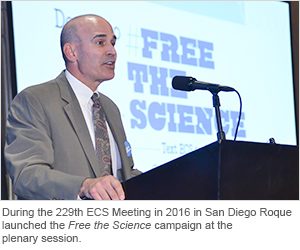
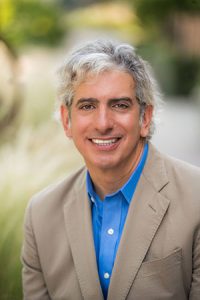
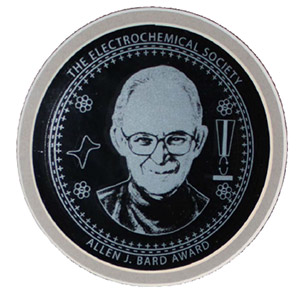
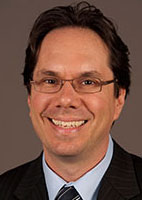

 Every year, we celebrate International Women’s Day on March 8 as a way to commemorate the movement for women’s rights. This global holiday honors the social, economic, cultural, political – and in our case – scientific achievements of women.
Every year, we celebrate International Women’s Day on March 8 as a way to commemorate the movement for women’s rights. This global holiday honors the social, economic, cultural, political – and in our case – scientific achievements of women.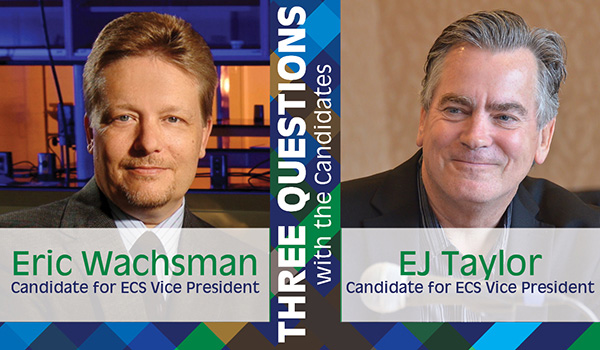 The 2018 Society elections are upon us and ECS wants you to learn more about the candidates from the candidates. All voting members are eligible to participate via electronic proxy. You would have received an email with voting instructions January 15, 2018.
The 2018 Society elections are upon us and ECS wants you to learn more about the candidates from the candidates. All voting members are eligible to participate via electronic proxy. You would have received an email with voting instructions January 15, 2018.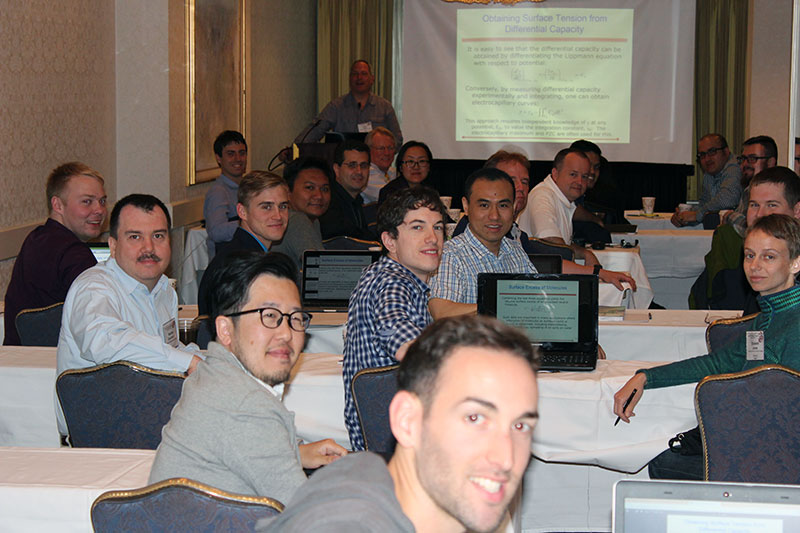 At each of our biannual meetings, ECS works with our education committee to provide professional development programming to help our students and young professionals develop skills for their current and future careers. ECS provides new topics at each meeting and helps attendees build their professional network.
At each of our biannual meetings, ECS works with our education committee to provide professional development programming to help our students and young professionals develop skills for their current and future careers. ECS provides new topics at each meeting and helps attendees build their professional network.